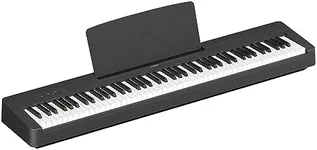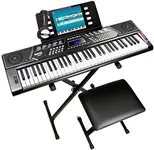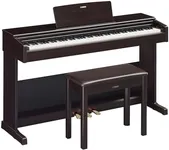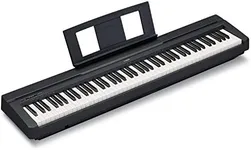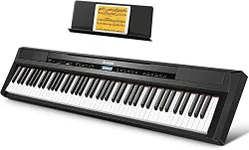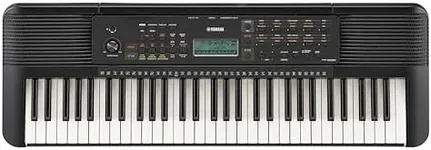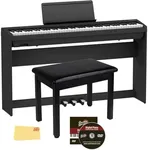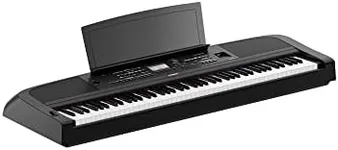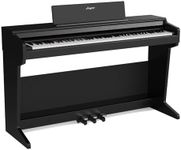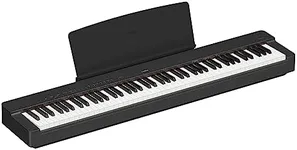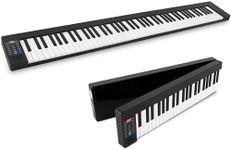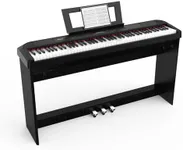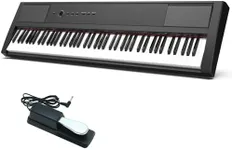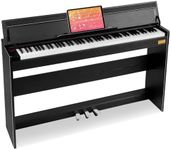Buying Guide for the Best Keyboards For Pianos
Choosing the right keyboard for your piano playing needs can greatly enhance your musical experience. Whether you're a beginner, an intermediate player, or a professional, selecting the right keyboard involves understanding various specifications and how they align with your personal requirements. Here are some key specs to consider when picking a keyboard for pianos, along with explanations to help you make an informed decision.Number of KeysThe number of keys on a keyboard can range from 25 to 88. Full-sized pianos have 88 keys, and this is often preferred by advanced players who need the full range for classical and complex pieces. Beginners and casual players might find keyboards with 61 or 76 keys sufficient, as they are more compact and easier to manage. Consider your playing style and the type of music you intend to play when deciding on the number of keys.
Key ActionKey action refers to how the keys respond when pressed. There are three main types: weighted, semi-weighted, and unweighted (synth-action). Weighted keys mimic the feel of an acoustic piano and are ideal for serious pianists who want a realistic playing experience. Semi-weighted keys offer a balance between the two, providing some resistance but not as much as fully weighted keys. Unweighted keys are lighter and more suitable for beginners or those who play more electronic music. Your choice should depend on your level of experience and the type of music you play.
Touch SensitivityTouch sensitivity means the keyboard responds to how hard or soft you press the keys, affecting the volume and tone. This feature is crucial for expressive playing, as it allows for dynamic control similar to an acoustic piano. Keyboards can have different levels of touch sensitivity, from none to multiple levels. If you are a beginner, you might start with a keyboard with basic touch sensitivity, while more advanced players should look for keyboards with higher sensitivity for greater expression.
PolyphonyPolyphony refers to the number of notes a keyboard can produce at the same time. Higher polyphony allows for more complex and layered sounds without notes cutting off. For beginners, 32-note polyphony might be sufficient, but intermediate and advanced players should look for at least 64-note polyphony, with 128 or more being ideal for complex compositions and performances. Consider the complexity of the music you play when choosing the polyphony.
Sound QualitySound quality is determined by the samples used in the keyboard and the quality of the speakers. High-quality samples from renowned piano brands provide a more authentic sound. Additionally, good speakers or the ability to connect to external speakers can enhance the overall sound experience. If you are serious about your piano playing, invest in a keyboard with high-quality sound samples and good speaker systems. For practice purposes, a decent sound quality might suffice.
PortabilityPortability is an important factor if you need to move your keyboard frequently. Lighter and more compact keyboards are easier to transport, making them ideal for students, gigging musicians, or those with limited space. However, more portable keyboards might compromise on features like the number of keys or key action. Consider how often you will need to move your keyboard and balance it with the features you need.
ConnectivityConnectivity options such as MIDI, USB, and audio outputs allow you to connect your keyboard to other devices like computers, recording equipment, or external speakers. This is particularly important for those who want to record their music, use music software, or perform live. Ensure the keyboard has the necessary ports and connectivity options that match your intended use.
